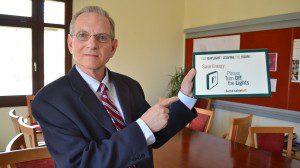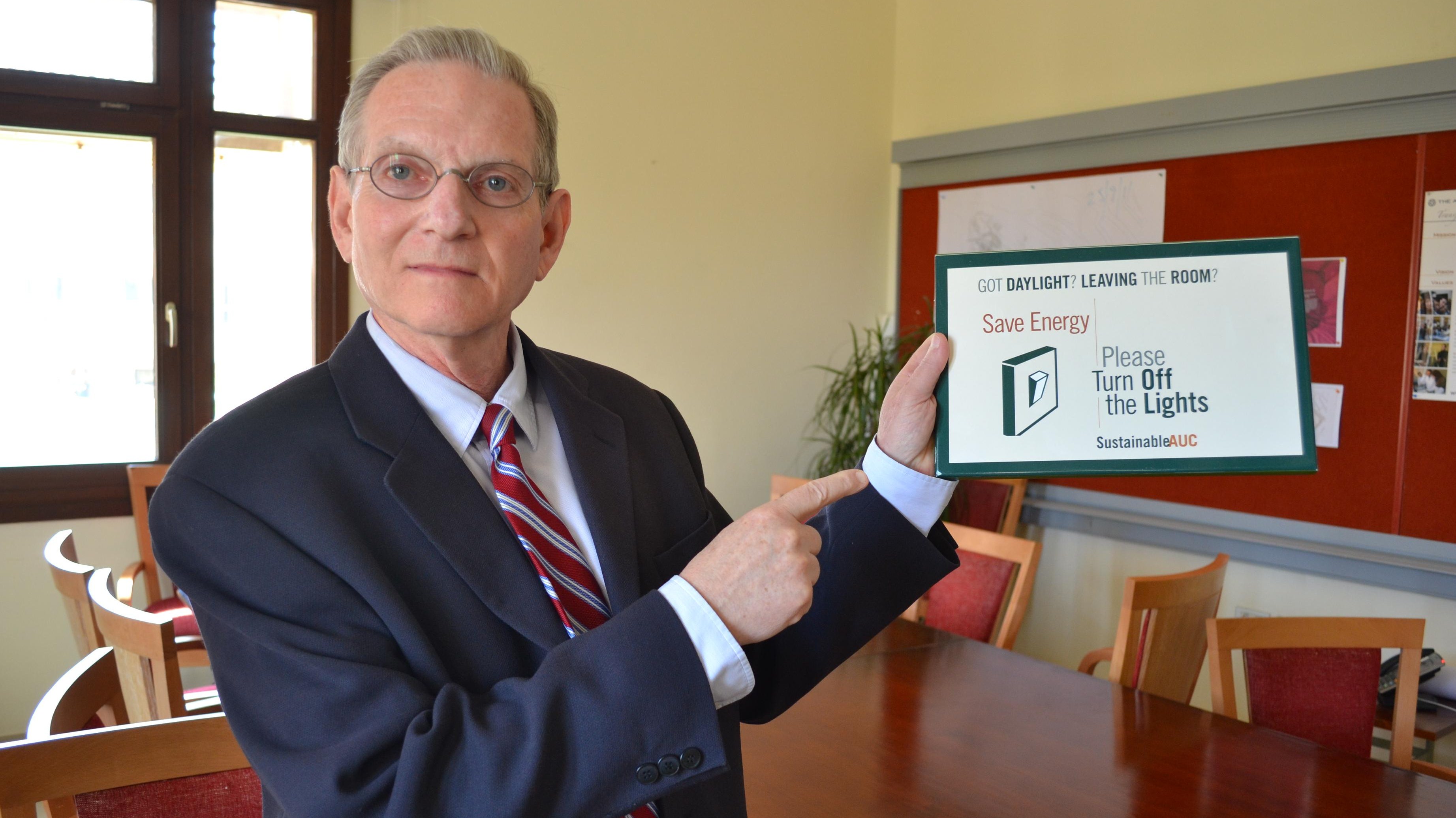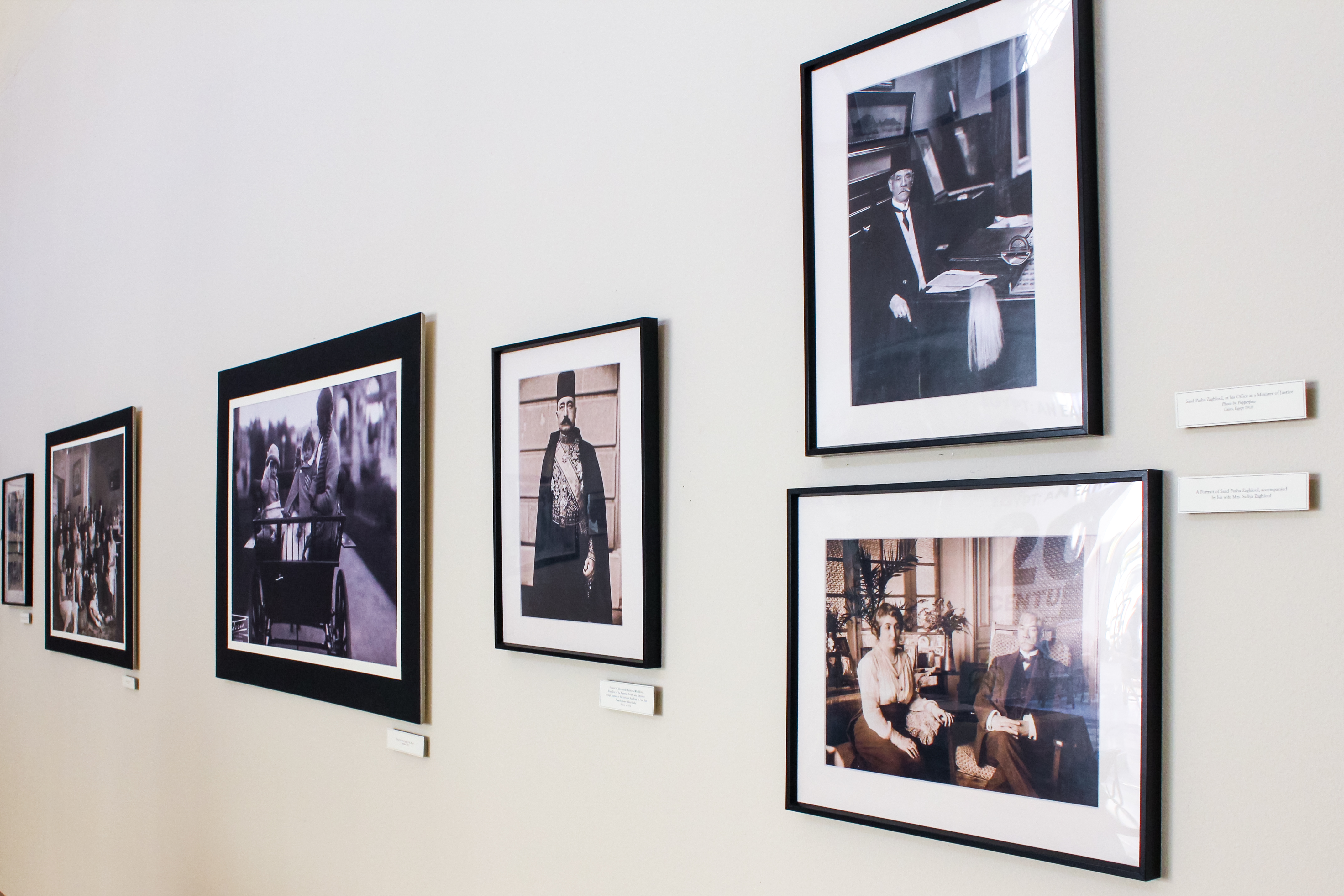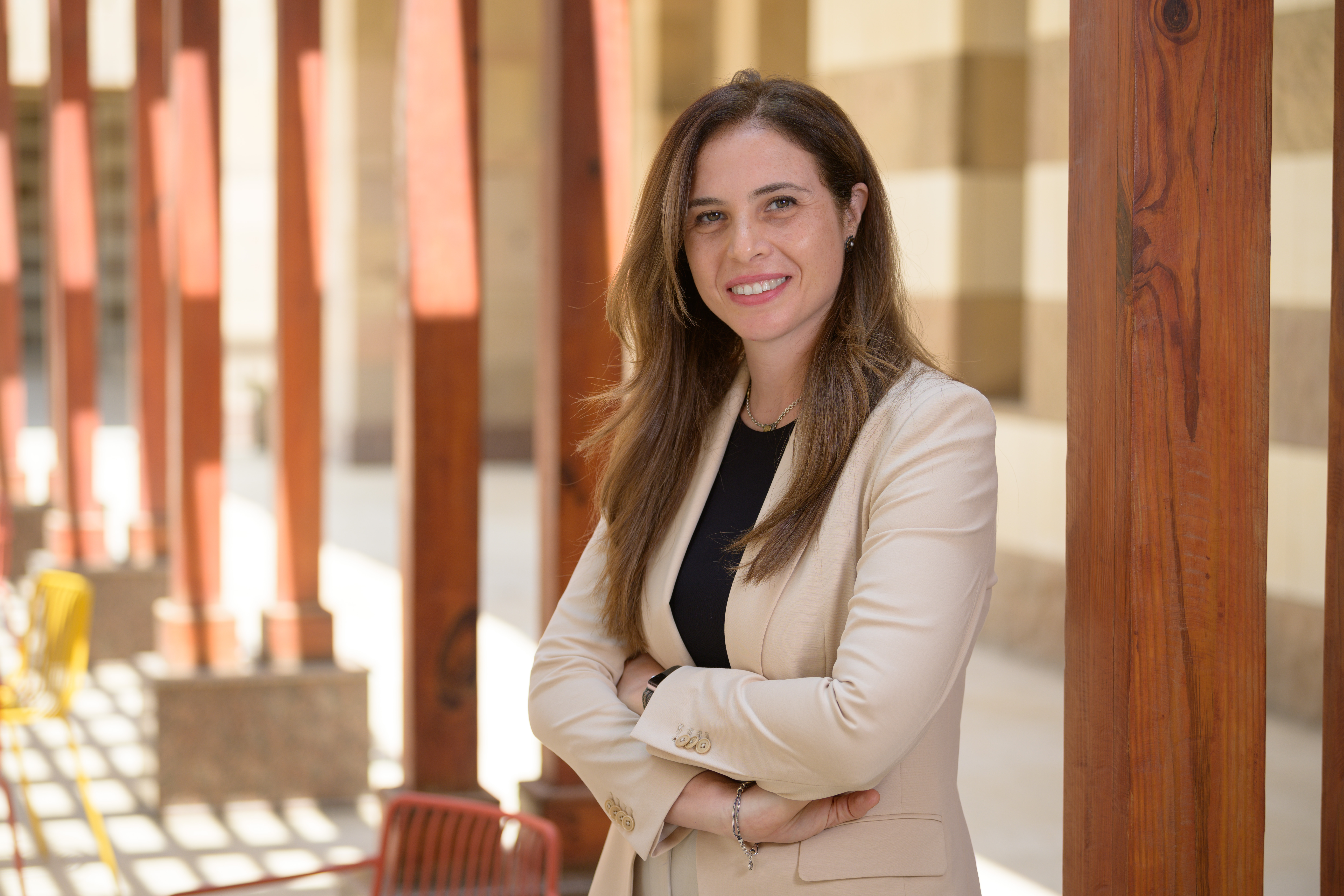Meet Mark Rauch, AUC’s energy hero

What makes AUC stand out among other universities in Egypt or the region? Some people would say its academic services, some might say its incredible campus, while others would suggest its lasting commitment to excellence.
Most, however, would conclude that it is a mixture of all these things.
What most people usually forget, however, is that there is a crew working behind the scenes – the people we don’t encounter on a day-to-day basis. Those people have a great impact on the prosperity and growth of AUC as an institution.
One of these people is Sustainability Coordinator Marc Rauch.
Rauch was appointed Sustainability Coordinator in September 2011. He formed a task force that he called the Energy and Resource Conservation and Efficiency (ERCE) and they worked on creating his first project, which was named The Carbon Footprint.
The project analyzed the amount of carbon dioxide emitted into the atmosphere by all activities at AUC, and highlighting the most and the least important sources of carbon dioxide emissions. This granted AUC the title of being the first university out of 550 universities and colleges in the Middle East to accomplish this.
It also put Rauch’s work into perspective because, as he said, “how can you possibly help the university become more sustainable if you didn’t know what the sources of the problem were?”
The Carbon Footprint report showed that heating, ventilation, and air conditioning (HVAC) were the biggest pollution contributors, followed by transportation, lighting and electrical equipment, and water supply.
He started working on the HVAC by asking for class schedules so as to ensure that air-conditioning was on only when needed and not around the clock as it once was.
He took out the old fashioned incandescent light bulbs that were used and replaced them with compact fluorescent bulbs, which require less energy.
He changed the source of water for irrigation so as to lower its cost. After one year the amount of energy we use decreased by 21.7 percent saving the university $1, 138, 000 in energy cost.
Rauch is currently working on decreasing the energy consumption by the university over the course of the next 3 years by a third (33 percent).
The Caravan sat down with Rauch to learn more about his plans at AUC.
Where were you before you became Sustainability Coordinator at AUC?
Before I came here I was a lawyer in New York City.
That’s a drastic career change …
It’s not really as much of a change as you think because my practice area was commercial real estate, so I worked with real estate developers all the time and I used to work with architects and engineers all the time about building systems; air conditioning, heating, lighting and so forth.
I was very familiar with these issues and how you make them work better which is crucial to this whole thing. That’s number one. Number two, I also worked for the New York City government on the side, I had various volunteer positions and one of the last things I did is I was the special advisor to the mayor’s office of sustainability in New York. I worked on a big project on improving energy efficiency for commercial office buildings.
So, I was actually working directly in this field right before I came here. I wanted to switch fields because I’d been practicing law for 35 years so it was enough already.
So I was taking courses at ColumbiaUniversity on Urban and Environmental planning and I was preparing to change careers to something like urban planning or sustainability or something along those lines. I took about a semester’s worth of courses at graduate school at Columbia so I actually have a lot of background.
That’s really inspiring.
It shows that you don’t have to do the same thing your whole life; you can change.
In the future it will always be that way. Knowledge is changing so quickly, people are getting much more flexible about their ideas of work. I mean, the cliché is “life-long learners”. You’re going to be spending your whole life learning new things. It’s not going to seem so odd when you’re my age to go from one career to another; it will become more common.
Why did you decide to come to AUC?
Well, I’m married to the president of the University; that’s one reason. That’s an important reason, but other than that it’s because I like Egypt, and I had been going back and forth when Lisa [Anderson] was provost so I was familiar with Egypt. I moved here a week before the revolution.
Besides, nobody was doing sustainability here. I was invited to speak at a conference in Beirut about sustainability. I went and showed them what we were doing at AUC. A girl raised her hand in the back, and there were about 400 people in the room, she said, “I’m from AUB [AmericanUniversity in Beirut] and what you’re doing at AUC is very admirable. We always talk about doing things like this but we never do it. How are you able to do things like this?” I said, “It has to be somebody’s job.”
Do you think that if the world continues consuming energy as we do today our natural resources will soon run out?
It depends. You can see that people do studies of what will happen if we don’t change our ways, you can see that now they can predict a year when different resources will run out.
What about Egypt?
I think the thing that’s important about Egypt is that in this region there are some countries that are energy rich like Saudi Arabia, Kuwait and Libya. They have all the oil they could use for hundreds of years to come. Then you have countries that don’t have any energy resources at all. For example I don’t think that Lebanon has any oil or gas. But Egypt is in the middle. It’s not really an energy rich country and it’s not really an energy poor country. We had a lot of oil but we used it all. So just recently, we started importing oil when at a different time we used to export it. That’s a bad thing.
We do crazy things like subsidize energy prices so people just drive bigger cars because gas is so cheap when what they really should be saying to the government is ‘we need more public transportation’.
Why doesn’t the metro come out here to Katameya, for example?
Oil is a problem in this country, natural gas there’s a lot more of. That doesn’t mean it’s forever but there’s a pretty big supply of natural gas and there are questions of whether we should convert everything to natural gas. We’ve already converted all the taxis for example. So in conclusion, oil could run out, but natural gas won’t for a while.
As for water, the World Bank says we need 1000 cubic meters of water per capita each year. We currently have 600 cubic meters per capita, and it will keep getting less because our population is growing while the water supply is constant. At some point, you’re going to really feel the size of the problem.



